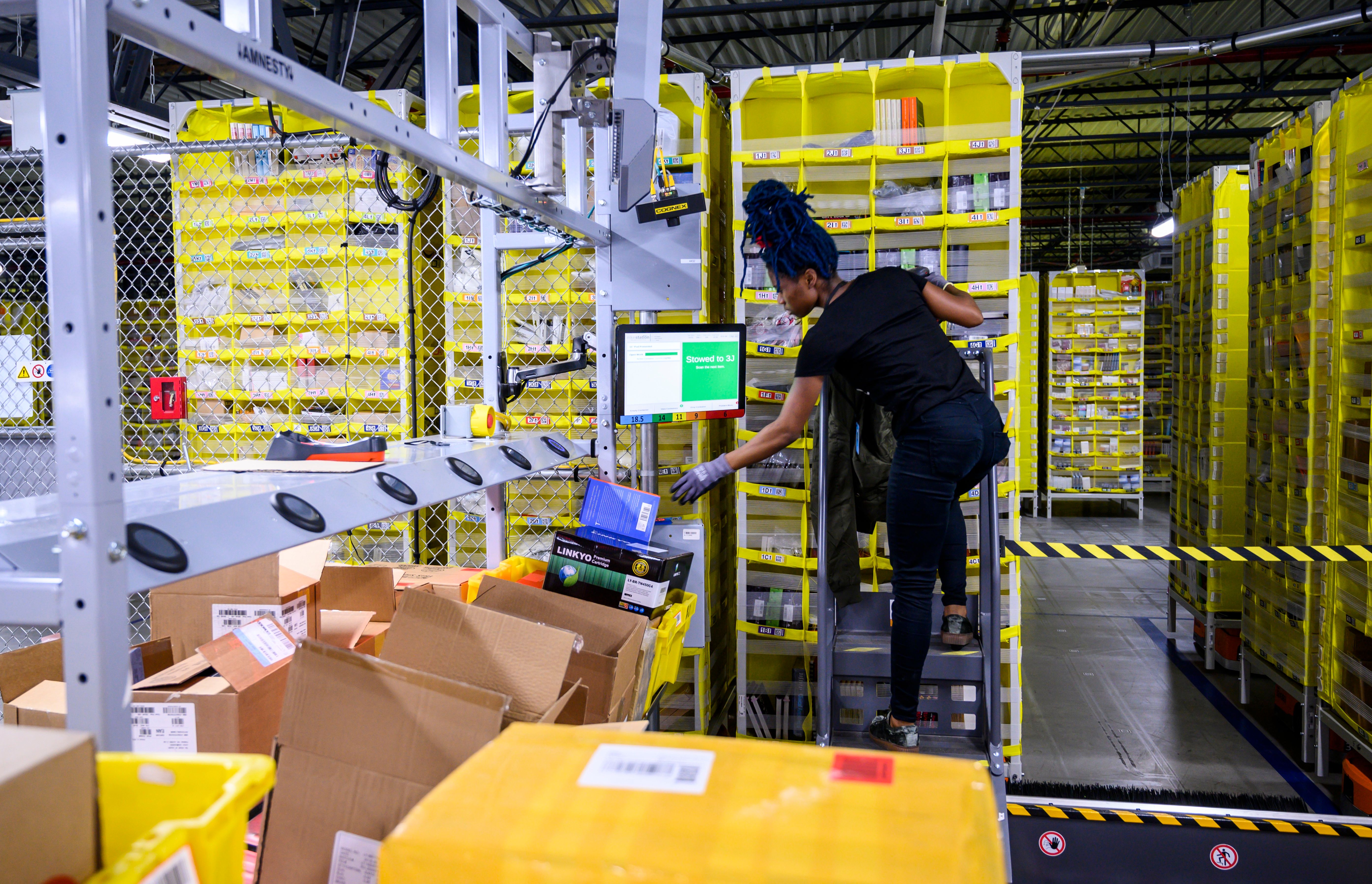Amazon reportedly used 3rd-party sellers' data to launch competing products


A free daily email with the biggest news stories of the day – and the best features from TheWeek.com
You are now subscribed
Your newsletter sign-up was successful
Amazon has insisted, even to Congress, that it does not use its third-party sellers' data to inform development of competing products. But through interviews with more than 20 former employees and an analysis of documents, The Wall Street Journal has concluded that's not true.
Amazon's business relies on third-party retailers, who either stock products at an Amazon warehouse or sell them directly from their own shelves through the e-commerce giant's online marketplace. And like many big box stores, Amazon often creates versions of those products sold under its brand name, though Amazon associate general counsel Nate Sutton said in congressional testimony last year that "we don't use individual seller data directly to compete" with third-party sellers, and the company maintains it has rules against accessing that data.
But "in interviews, former employees and a current one said those rules weren't uniformly enforced," the Journal writes. "Such information can help Amazon decide how to price an item, which features to copy, or whether to enter a product segment based on its earning potential," and using it "was a common practice that was discussed openly in meetings they attended," former employees tell the Journal. Data on total sales and marketing and shipping prices reportedly helped Amazon replicate a bestselling car trunk organizer, among other things.
The Week
Escape your echo chamber. Get the facts behind the news, plus analysis from multiple perspectives.

Sign up for The Week's Free Newsletters
From our morning news briefing to a weekly Good News Newsletter, get the best of The Week delivered directly to your inbox.
From our morning news briefing to a weekly Good News Newsletter, get the best of The Week delivered directly to your inbox.
"Like other retailers, we look at sales and store data to provide our customers with the best possible experience. However, we strictly prohibit our employees from using nonpublic, seller-specific data to determine which private label products to launch." Amazon said in a statement. Read more at The Wall Street Journal.
A free daily email with the biggest news stories of the day – and the best features from TheWeek.com
Kathryn is a graduate of Syracuse University, with degrees in magazine journalism and information technology, along with hours to earn another degree after working at SU's independent paper The Daily Orange. She's currently recovering from a horse addiction while living in New York City, and likes to share her extremely dry sense of humor on Twitter.
-
 How the FCC’s ‘equal time’ rule works
How the FCC’s ‘equal time’ rule worksIn the Spotlight The law is at the heart of the Colbert-CBS conflict
-
 What is the endgame in the DHS shutdown?
What is the endgame in the DHS shutdown?Today’s Big Question Democrats want to rein in ICE’s immigration crackdown
-
 ‘Poor time management isn’t just an inconvenience’
‘Poor time management isn’t just an inconvenience’Instant Opinion Opinion, comment and editorials of the day
-
 TikTok secures deal to remain in US
TikTok secures deal to remain in USSpeed Read ByteDance will form a US version of the popular video-sharing platform
-
 Unemployment rate ticks up amid fall job losses
Unemployment rate ticks up amid fall job lossesSpeed Read Data released by the Commerce Department indicates ‘one of the weakest American labor markets in years’
-
 US mints final penny after 232-year run
US mints final penny after 232-year runSpeed Read Production of the one-cent coin has ended
-
 Warner Bros. explores sale amid Paramount bids
Warner Bros. explores sale amid Paramount bidsSpeed Read The media giant, home to HBO and DC Studios, has received interest from multiple buying parties
-
 Gold tops $4K per ounce, signaling financial unease
Gold tops $4K per ounce, signaling financial uneaseSpeed Read Investors are worried about President Donald Trump’s trade war
-
 Electronic Arts to go private in record $55B deal
Electronic Arts to go private in record $55B dealspeed read The video game giant is behind ‘The Sims’ and ‘Madden NFL’
-
 New York court tosses Trump's $500M fraud fine
New York court tosses Trump's $500M fraud fineSpeed Read A divided appeals court threw out a hefty penalty against President Trump for fraudulently inflating his wealth
-
 Trump said to seek government stake in Intel
Trump said to seek government stake in IntelSpeed Read The president and Intel CEO Lip-Bu Tan reportedly discussed the proposal at a recent meeting
